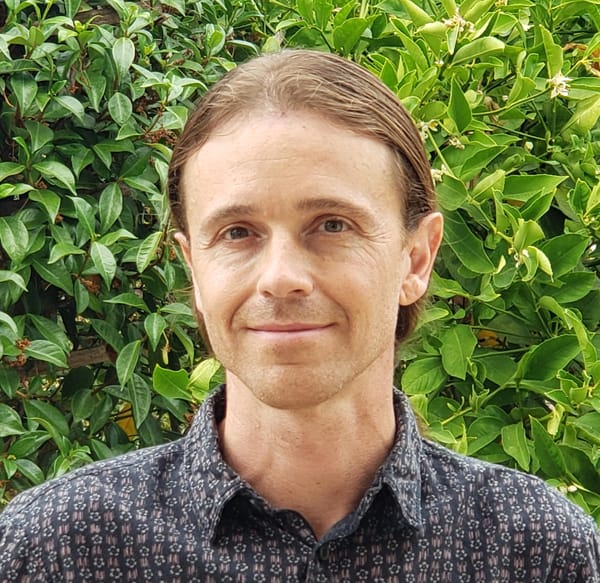VALLEJO – Vallejo’s four mayoral candidates presented differing approaches to city leadership as they answered questions about some of Vallejo’s most pressing concerns in a community forum on Thursday at the John F. Kennedy Library in downtown Vallejo.
The forum was organized by Askari Sowande and is a continuation of the 411 series - Vallejo Seeking solutions which Sowande has produced in previous election cycles. Moderator Alejandro Bras, co-founder of a company that produces educational toys for children, asked questions on budget priorities, transparency and accountability in government, attracting new businesses, housing affordability, the environment and public safety.
Four candidates are running for mayor of Vallejo in November: former Councilmember Pippin Dew, small business owner Dwight Monroe Jr., Participatory Budgeting Committee member Ravi Shankar, and Surveillance Advisory Board Chair Andrea Sorce.
Dew touted public-private partnerships to keep valued businesses and bring new development, pointing to her experience with a new Costco and housing development project. She also suggested creating Enhanced Infrastructure Finance Districts to fund projects downtown and on the waterfront, which she noted comes straight from the playbook of former West Sacramento Mayor Christopher Cabaldon, who is running for state Senate.
Dew, who is on the board of the San Francisco Bay Ferry, also pointed to a longer-term vision of developing a light rail spur that would connect the Vallejo Ferry terminal to the planned SMART train expansion to Sacramento.
“Having that connection at our ferry terminal to Napa and San Francisco will definitely increase our tourism ability,” Dew said. “It also unlocks federal and state dollars for multimodal, transit-oriented, high density, residential mixed use development.”
Monroe established himself as a firm public safety candidate. “We need to focus on one domino at a time, and that first domino is public safety,” he said. “Once we start knocking that public safety domino down, then we'll get access to better education, better developers and more resources coming to our city.”
Monroe weighed in on each issue often with insights matching his common-sense strategy, such as addressing government transparency by improving customer service and creating a more welcoming city hall so residents don’t feel discouraged from participating or asking questions.
Shankar made a point to empathize with community members who may feel disillusioned, particularly in regard to the Police Department. He recommended mandatory drug testing for officers involved in a critical incident or shooting and advocated for eliminating opportunities for city officials to destroy evidence related to officer shootings.
In response to questions on budget priorities, Shankar shared his frustration with the city’s financial losses due to frequent lawsuits and suggested that the city tighten its belt like many residents are doing in their own home finances.
Sorce solidified her position as a candidate for change; she cited transparency and accountability as the root of many of the city’s current problems and she called for a forensic audit of the city’s finances going back five years. She framed police reform as foundational to addressing the department’s staffing problems, but she also promoted a short term plan to immediately address safety and security issues by creating an “interagency task force of law enforcement agencies.”
When discussing housing issues Sorce characterized the city’s spending on a planned supportive housing project on Broadway as “mismanagement” of city resources. “Nobody looks at this situation in Vallejo and says, ‘Yeah, let's keep doing that,’” Sorce said.
In an exchange over whether candidates would support tenants’ rights measures including rent control and just cause evictions, Monroe said that he is a renter and thinks that the city’s lack of tenant protections has contributed to homelessness. He added that planned housing developments on Mare Island need to be accessible for disadvantaged communities.
Sorce did not shy away from marking key points of divergence between herself and Dew.
Dew said that she supports the tenants’ right to organize but said that she would advocate for a form of tenant support that ensures that the rent still gets paid.
“Most of our rental properties here in town are actually owned by mom and pop landlords,” Dew said. “So it's very hard for them to keep that property if the rent isn't being paid because they still have a mortgage that they have to pay. And so it's important to make sure that we don't lose that rental housing stock.”
Sorce pushed back. “Yes, we do have mom and pop landlords, but we also have some big landlords that are violating the law,” she said. Sorce questioned whether state rent control is currently being enforced and suggested a complaint system for tenants who need to report a violation. But she added that she would rather build more housing than rely on rent control.
“I fully support protections for renters, tenant associations, Just Cause Eviction statutes, the establishment of a rental registry to track misconduct,” she said.
On the issue of police reform, Sorce again moved to differentiate her position from Dew, who pointed to her work as a councilmember and chair Public Safety Policy Committee for the League of California Cities to help establish an officer decertification process at the state level through 2021 legislation.
Sorce advocated for objective standards for how officers are disciplined when they violate department policy. She acknowledged that decertification may offer some benefit in Vallejo, but, she said, “it relies on the departments themselves to report officers for decertification. I don't know yet of a single Vallejo police officer that has been referred to the state for decertification.”
While the moderator’s questions covered a broad array of key decision points for the city, some of the most insightful responses came from questions posed by audience members.
Vallejo realtor Diana Lang asked the candidates if they would support an ordinance “with teeth” that would discourage vacant buildings downtown.
Dew said that she would support it but she would want the ordinance to pair an incentive such as tax or fee rebates along with fines or deterrents because many of the building owners are facing expensive upgrades such as earthquake retrofits, fire sprinkler installations or accessibility issues before they can be open to the public.
Sorce said, “You just can't revitalize and activate downtown Vallejo with the number of vacant buildings that we have that aren't up to code. It doesn't matter how many people we put down there, or events or things like that, if those buildings stay vacant, we're losing out. So yeah, get your building up to code or sell.”
Monroe agreed that owners need to get their buildings up to code or sell. But he added, “stop saying no to everything,” referring to the Elite Public Schools proposal to utilize a vacant building for a High School that was denied by the City Council.
“We got to let it play out and see how it happens and see how it works out, because we keep complaining about vacant properties, but we are turning down property opportunities as well,” Monroe said.
Mishel Deniz Adolph asked the candidates what they would do to fix what she called, “a game of Whack-a-Mole” in which the city evicts homeless Vallejo residents from one location only to have them set up camp at another location because they have no permanent place to be.
Shankar said that activists who are working on this issue deserve public support and that he has made individual efforts to assist homeless individuals such as offering a ride or opening his home for someone to shower.
“What's worked in other cities,” Sorce said, “is designating a site where people can be safely relocated and get the support that they need with sanitation, showers, lockers, dumpsters, etc, and that is something that's been proposed by the Vice Mayor and rejected by our city attorney's office, despite having been done in many other cities around the Bay Area to great success.”
Dew said that a lot can be gained from better coordination with nonprofit groups, government agencies and businesses. She said that in the past year an owner of several mobile home parks had housed over 100 people after engaging with county officials and nonprofits to provide mental health support, substance abuse counseling and career development training for those residents.
Monroe said that there have been too many delays with the city’s planned navigation center and that Vallejo needs that project completed and open for service. He also said that the city could be more supportive of the many nonprofit organizations that are doing the work to provide services for the homeless.
Vallejo residents will vote to select a mayor in the general election on Nov. 5. The county registrar's office expects ballots to arrive in the mail during the first week of October. More information is available at the Solano County Registrar of Voters website.
Before you go...
It’s expensive to produce the kind of high-quality journalism we do at the Vallejo Sun. And we rely on reader support so we can keep publishing.
If you enjoy our regular beat reporting, in-depth investigations, and deep-dive podcast episodes, chip in so we can keep doing this work and bringing you the journalism you rely on.
Click here to become a sustaining member of our newsroom.
THE VALLEJO SUN NEWSLETTER
Investigative reporting, regular updates, events and more
- Elections
- Election 2024
- government
- Vallejo
- policing
- Housing
- Pippin Dew
- Ravi Shankar
- Dwight Monroe Jr.
- Andrea Sorce
- Vallejo City Council
- Askari Sowonde

Ryan Geller
Ryan Geller writes about transitions in food, health, housing, environment, and agriculture. He covers City Hall for the Vallejo Sun.
follow me :




